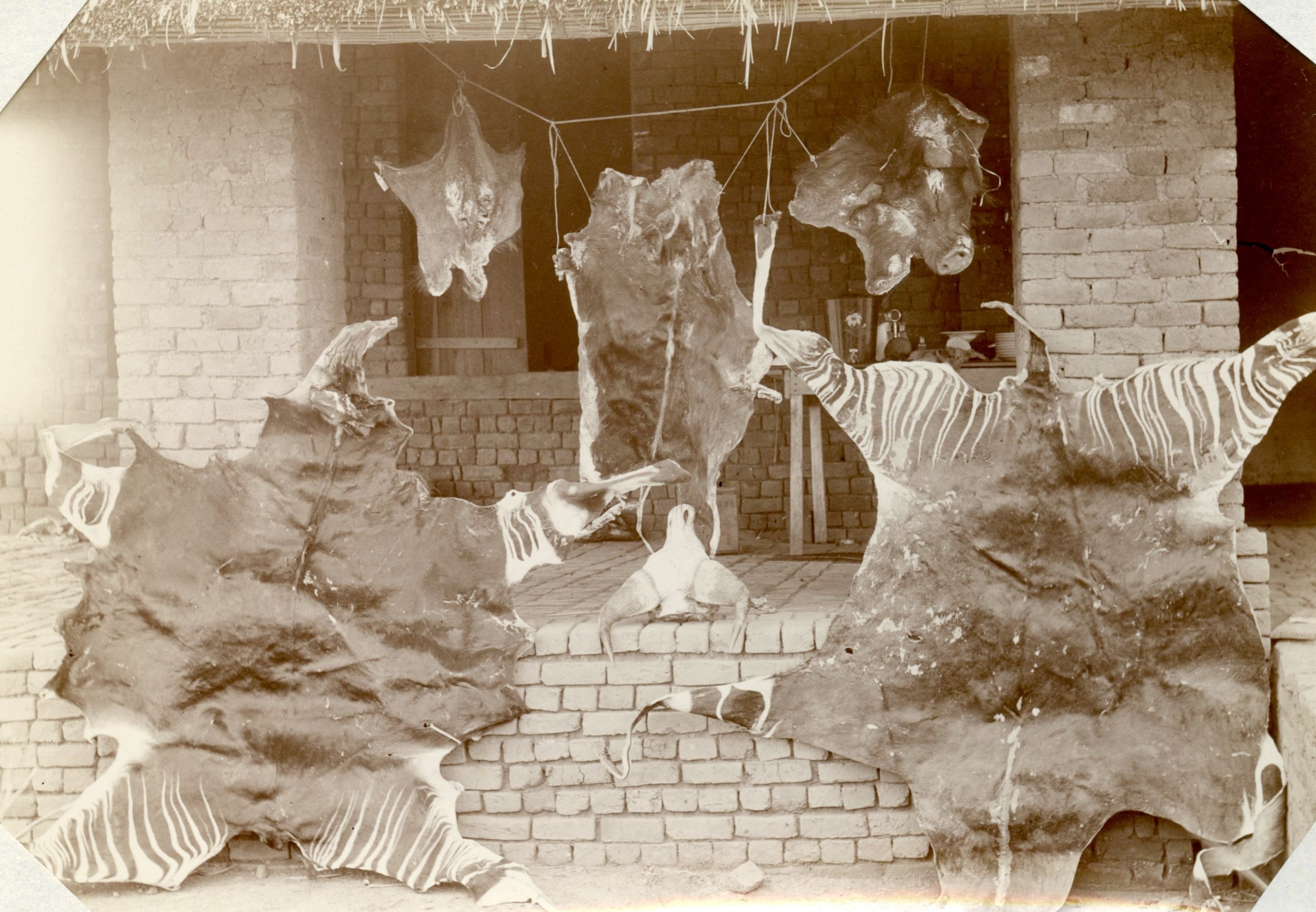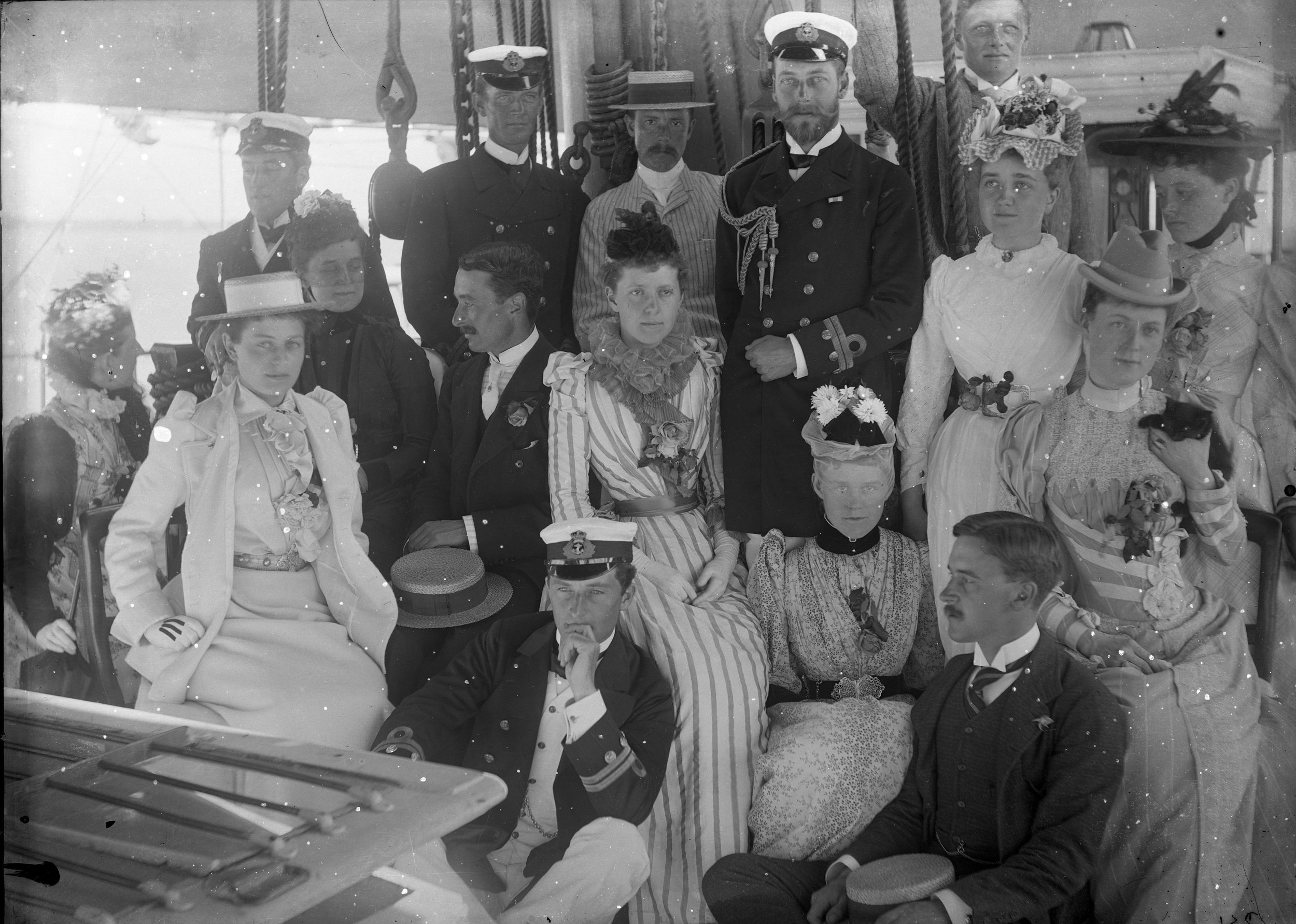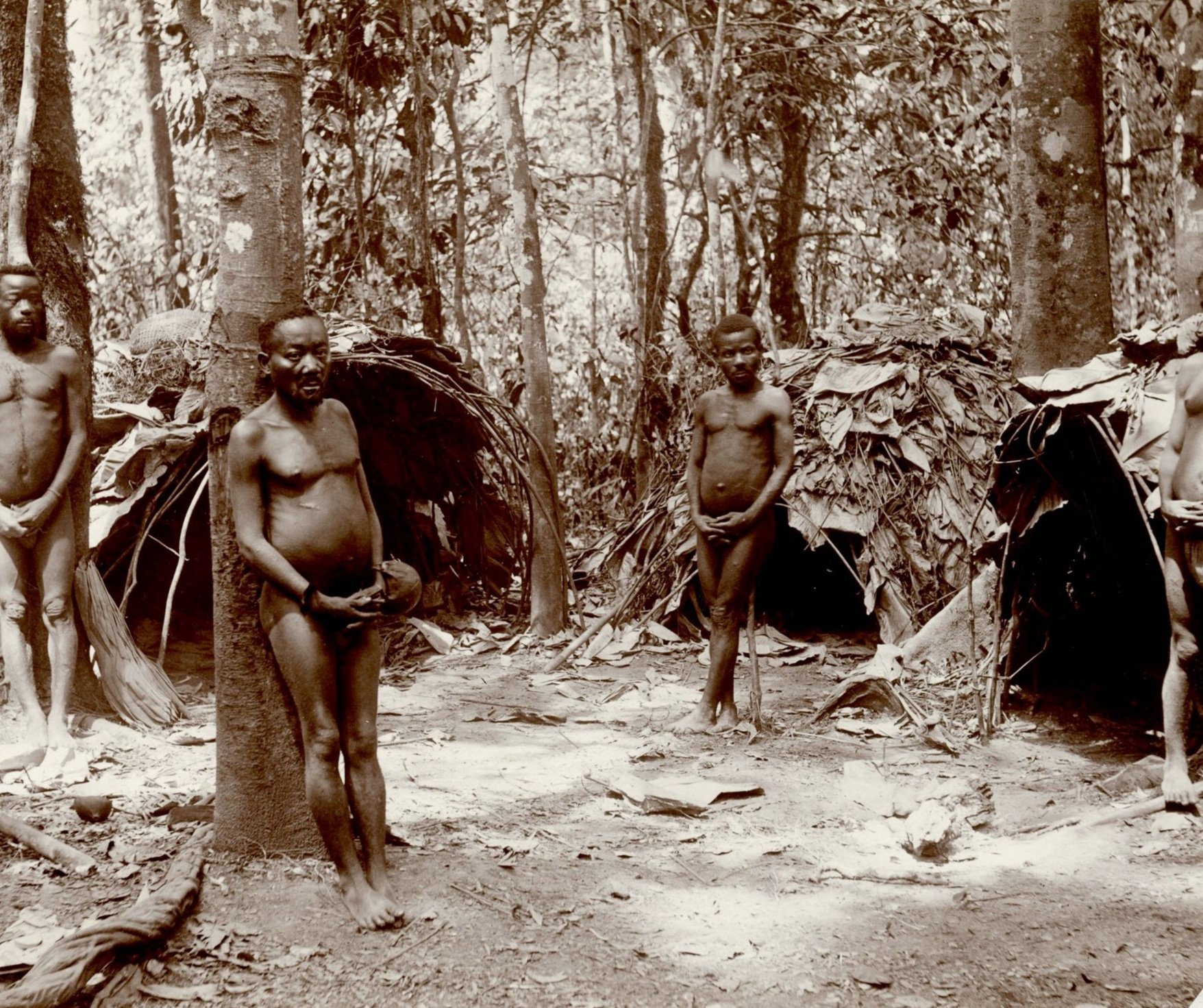What’s New
26th July 2022
This week we have three articles for you, looking at the same theme from three different points
The first takes a look at the animal species within the Harrison Collection
The second is a reflective piece, identifying those key points in the diaries where he mentions his kills
The third article looks at big game hunting a little closer to home - here on the North Yorkshire coast - in the form of the tunny fishing.
12th July 2022
This week we have two articles for you.
The first - Strange Currency - looks at the impact of colonialism upon the Democratic Republic of Congo, and explores the ruthless exploitation that took place.
The second - Role Of The Citizen Researcher - looks at the way in which this project has engaged with citizen researchers, in what is thought to be a unique, and certainly new, way.
5th July 2022
Indigenous peoples in the Democratic Republic of the Congo are widely recognized as the country’s original inhabitants. As placed-based peoples, they possess unique ways of life formed through living in symbiosis with the biodiversity-rich forests of the Congo Basin. This piece explores the impact of conservation on their way of life.
21st June 2022
Whilst Harrison, returning from the Congo to Britain with artefacts, treasures and even animals he had hunted to display in his collection, does not seem out of the ordinary today, transporting and exhibiting people is unthinkable in our society. However, at the beginning of the 20th century, this would not have been a shocking affair as racial differences were much more prominent in British society. The British public found the six African ‘visitors’ to be fascinating and captivating, rather than outrageous or distasteful, due to the mystery of the Congo and the intrigue around those of an unfamiliar ethnicity.
14th June 2022
Following the Ituri group’s visit to Britain where they were viewed as novelties only ‘discovered’ by the modern West in 1873. In truth they are first mentioned in the C.8th BC by Greek poet Homer who refers to ‘Pygmaian men’ at ‘constant war’ with heron-like cranes, Greek historian Herodotus c.450 BC described an expedition to the far south of Africa attacked by “little men”, while Aristotle also spoke of cranes migrating “to the marshlands south of Egypt where the Nile has its source.
7th June 2022
In 1904 when first visiting Congo Free State, James Harrison described it as an “enormous country, reaching from the Nile to the West Coast [of Africa]”. Having gone there in pursuit of big game, his focus soon shifted to Congo’s Bambuti (Mbuti) people he described in his book ‘Life among the Pygmies of the Ituri Forest’.
31st May 2022
Harrison wrote in support of King Leopold II, but many voices of protest could be heard against the murder and atrocities committed by those in pursuit of wealth and recognition in the Congo Free State. People like Morel, Casement and Seeley-Harris were already raising the alarm akin to the anti-slavery movement earlier in the early 19th Century.
24th May 2022
A look at scientific racism through the eyes of Richard Cobden Phillips. He was also present in the Congo in the 1880’s, married a local woman and had three children with her. None of this prohibited him from sharing his ideas on his ‘scientific’ observations about the culture and habits of African people.
10th May 2022
This article shows the different ways the Mbuti were seen by Europeans and Africans as well as some of the missionaries who engaged with them. This brings an insight into the fact that opinion and perceptions about the Bambuti has gained and lost favour through time. Their way of life as hunter-gathers, which can appear very different from others, has led to distrust and misunderstanding despite the lessons their lifestyle can teach others about co-existing with nature.
3rd May 2022
This week there are two submissions both based in the Scarborough area. The first looks at George Lord Beeforth who was one of the most influential figures in the early development of the southern side of Scarborough.
The second takes us back through time on a trip to Forge Valley in the footsteps of the Edwardian visitors to the town.
26th April 2022
The geology of the Democratic Republic of the Congo (DRC) is several billions of years old and with many geological events. The disruption in the earth’s core caused by the considerable volcanic activity has led to its historical abundance of natural resources such as gold, diamonds and other valuable minerals. The discovery of these resources coupled with the development of a need for rubber, and ivory made Africa attractive as a continent for exploration.
19th April 2022
James Harrison’s expedition and the experiences of the indigenous Africans are detailed in these two accounts.
The first shows that whilst it is clear from what Harrison left behind that although his expeditions were extensive and included South America, North America (including Bermuda), Japan, India, East Africa and South Africa, it is the trips he made to the Congo that were of particular significance. His fascination with both the Okapi and the Bambuti led to return visits and later the appalling practice of exhibiting human beings. This is a concise article describing Harrison’s life, his expeditions and the collection he left behind.
The second article details how the four men and two women experienced their time in England as objects of fascination for the huge audiences they attracted throughout the country.
5th April 2022
Porters were essential in order to travel through areas which were impossible to navigate by road or river. The language used to describe the porters is insightful with regular mentions of ‘fresh porters’ and the count of porters listed along with commodities “Plenty porters - milk and eggs” with frequent mentions of inexact numbers of “some 40” or ‘40 odd”.
22nd March 2022
This follows on from last week's article and details Lord Lansdowne's disapproval of James Harrison's intentions in bringing the six Africans to England. Staying for weeks in Cairo to gain better health, the six were observed and scrutinised by the pioneering and eminent medic Professor Grafton Elliot Smith. This period began the experiences of the Bambuti travellers in the company of the British social elite.
15th March 2022
Colonel James Harrison spurred on by his friends went in search of six 'pygmies' to bring back to perform on the stage. Part 1 of this article informs on his journey starting in Sudan through to the Ituri Forest to gather his six 'little band of volunteers'. A pause in Cairo on the way back in April 1905 at a time of Egyptian tomb discoveries was needed to address health concerns that drew the attention of the Governments both in Egypt and at home.
8th February 2022
There are two articles this week focusing on the theme of taxidermy.
In the first taxidermist Steve McIntyre shares his expertise to provide an insight into the history and methods of this artform that was particularly prevalent at the beginning of last century as European explorers encountered the many unfamiliar animals for the first time.
The second is a response to the art. This article looks at taxidermy through the eyes of Paddington Bear, and the fact that most of the stories behind the individual animals are lost, replaced with just a small white label, and a decontextualised animal.
We welcome more considered responses to any of the themes raised in this project.
24th January 2022
This submission provides a look into how the different Bambuti communities adapt traditional practices to meet their needs for hunted and cultivated foods. This gives some insight into the seasonal impact within their lived environment that affects their ability to gather a sufficient range of food to maintain the well-being of their group.
20th January 2022
Thursday 20 January | 5–6pm
Scarborough Library
FREE
Scarborough Museums and Scarborough Library invite you to discover the collection of Colonel James Harrison - the vast archive of photographs, animal trophies, diaries, records and artefacts.
Learn about the collection, meet the project team and find out how you can get involved.
Visitors to the library are required to wear a face covering, unless they are exempt from doing so.
11th January 2022
Jeffrey Green gives a factual walk through to convey how extensively the six African visitors were toured and exhibited throughout the country and abroad. The media reviews demonstrate a mindset that perpetuated false interpretations and demeaning language with no concept of cultural difference.
21st December 2021
Colonel James Jonathan Harrison lived at Brandesburton Hall and hunted in far off places including in the Ituri Forest in the Democratic Republic of Congo. His activities amassed a collection that was so extensive it was remarked upon even in his time. His decision to write in support of King Leopold II of Belgian and his action of bringing back six indigenous Africans drew negative attention.
14th December 2021
The scale of the Harrison collection when it was in situ in Brandesburton Hall is difficult to convey but it was clear that it was remarkable in terms of the size and rarity of the examples of the animals hunted mounted and displayed to the satisfaction of the owners. This entry describes the unusual history of the Harrison collection which was donated to Scarborough in 1923 at a time when it was regarded as a valued asset. Clearly perceptions changed and with its several moves and its mysterious disappearance and subsequent rediscovery, some of the collection was lost forever. It is now significantly smaller than the original, representing a two-fold loss, first of the number of animals killed and then later with its poor conservation.














































